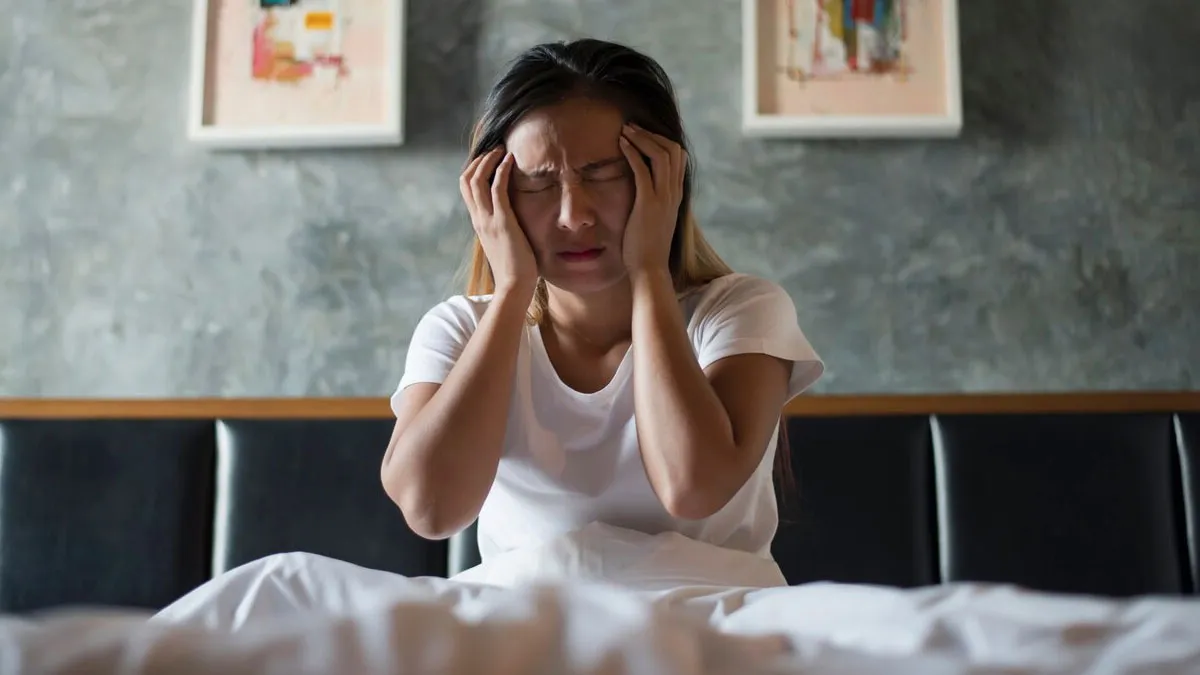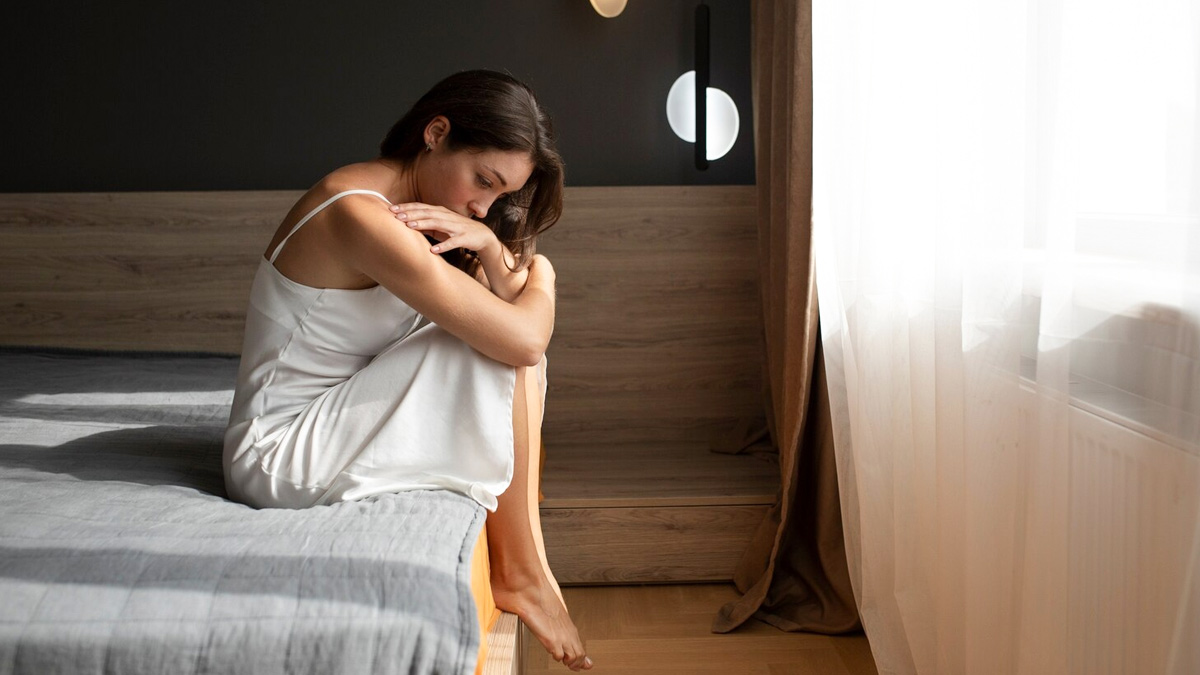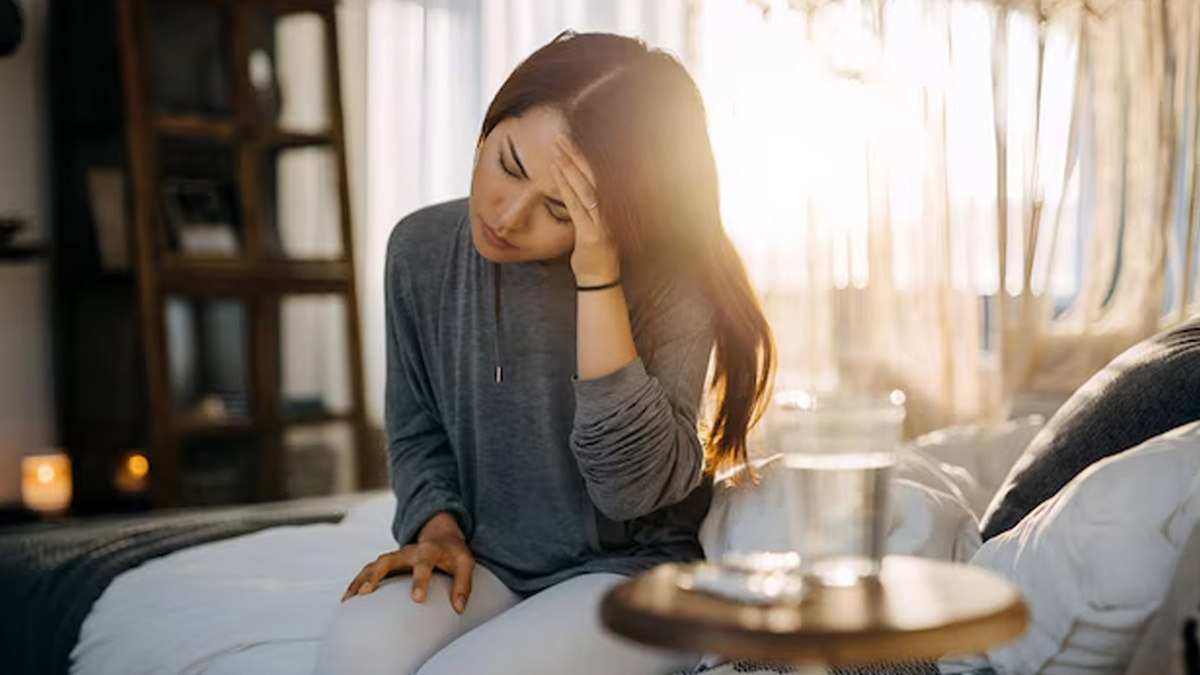
Anxiety is a human experience shared by almost everyone someday or the other, but study after study confirms that women are almost twice as likely as men to be diagnosed with an anxiety disorder. This difference isn't just in people's imaginations; there are biological, psychological, and social layers involved that lead women to experience anxiety at higher rates. From the impact of changing hormones to the burden of social expectations, the reasons are visible and invisible, working sometimes singly, but more often together, to heighten women's struggles.
Table of Content:-
CHECK YOUR
MENTAL HEALTH

In an interaction with the OnlyMyHealth team, Dr Divya Shree K R, Consultant Psychiatrist, Aster CMI Hospital, Bengaluru, explained the role of hormones and other hidden burdens that make women more prone to anxiety. Here is what he shared with us.
Role Of Hormonal Changes and Stress In Anxiety
Hormones have a key role in regulating mood and mental well-being. Women undergo distinctive hormonal changes throughout their life cycle, through puberty, menstrual periods, pregnancy, postpartum, and menopause.
Estrogen and progesterone fluctuations can, in turn, affect neurotransmitters such as serotonin and GABA, which control mood and stress reactions.
Additionally, Dr Shree highlighted that Premenstrual Syndrome (PMS) and Premenstrual Dysphoric Disorder (PMDD) are the best examples of how dips in hormones will lead to increased anxiety, irritability, and emotional hypersensitivity.
Postpartum, sudden hormonal decreases can lead to mood swings and postpartum anxiety. So too does menopause have a unique set of hormonal fluctuations that enhance feelings of anxiousness.
Also Read: Tamil Actor Robo Shankar Dies Due to Severe Gastrointestinal Bleeding and Multiple Organ Failure

Biological Factors Beyond Hormones
In addition to hormones, genetic predispositions and differences in brain chemistry are also factors. Research indicates that women might have a more reactive hypothalamic-pituitary-adrenal (HPA) axis, which is the central stress response system of the body, making them more susceptible to stress. This biological hardwiring has the effect of heightening the strength of fearful thoughts and physical sensations such as a pounding heart or rapid breathing.
Social and Cultural Causes of Anxiety In Women
Outside of biology, women typically shoulder a greater psychological load because of societal roles and demands. According to Dr Shree, these include:
- Caregiving duties: Women commonly balance childcare, eldercare, and household chores alongside careers.
- Work-related stress: Sex discrimination, income disparities, and underrepresentation in decision-making can contribute to chronic stress.
- Social expectations: The pressure to do it all and present a certain image creates anxiety over looks, performance, and self-esteem.
These subtle pressures add to the biological issues, making the experience of anxiety multilayered and sometimes insurmountable.

Tips For Women To Cope With Anxiety and Move Forward
Though the reasons why women are more susceptible to anxiety are multifaceted, there are solutions available. Try these expert-approved ways:
- Medical care: Therapy, medication, and hormone-based treatments can stabilise mood.
- Lifestyle modifications: Exercising, sleep hygiene, mindfulness, and a balanced diet are all conducive to mental health.
- Social support: Fostering strong networks and demystifying women's mental health are essential.
Bottomline
Women's anxiety is more than worrying too much. It is the product of complex interconnected biological cycles, concealed social weights, and societal expectations. It is the understanding of these layers that is the beginning of compassion and improved mental health care for women everywhere.
FAQs
Q1. Are women actually more susceptible to anxiety than men?
Yes, research indicates women are almost twice as likely to be diagnosed with an anxiety disorder as a result of hormonal changes, biological differences, and social pressures.
Q2. Can hormonal shifts alone account for women's elevated anxiety?
No, although hormones have a significant role, other factors such as genetics, brain chemistry, caregiving roles, workplace discrimination, and societal expectations also play a part.
Q3. How can women effectively deal with anxiety?
Women can gain relief from therapy, medical care, mindfulness activities, exercise, healthy habits, and establishing strong support networks to help counteract anxiety.
How we keep this article up to date:
We work with experts and keep a close eye on the latest in health and wellness. Whenever there is a new research or helpful information, we update our articles with accurate and useful advice.
Current Version
Sep 19, 2025 12:31 IST
Published By : Tanya Srivastava